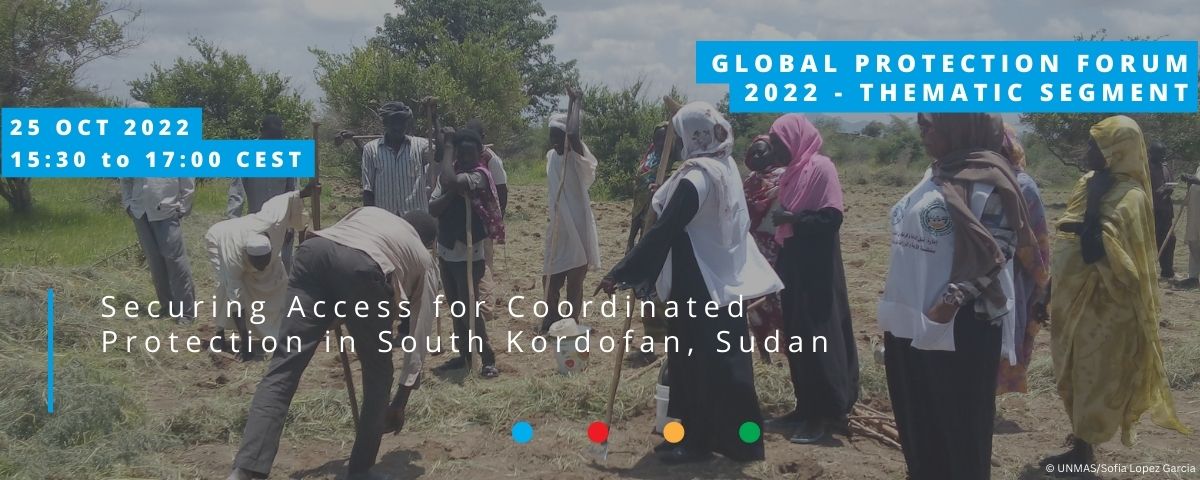The UNTFHS programme in Sudan is a complex interagency programme where six different UN agencies (IOM, UNOPS, FAO, WHO, UNICEF, and UNMAS) address different insecurities of the vulnerable people in the Sudanese state of South Kordofan. South Kordofan was inaccessible for years because of the security situation and the presence of landmines. This programme helped secure access to this Sudanese state and is an achievement that should be highlighted.
The work of each agency is interlinked and benefits each other, providing an integrated and powerful way to improve the livelihoods of people in conflict and post-conflict situations. The interventions begin with the clearance of explosive ordnance (UNMAS) and the rehabilitation of roads for improved and safe access (UNOPS). Then, it follows the improvement of basic services, particularly health services and the provision of essential medical supplies (WHO and IOM), the provision of Mine Risk Education (MRE) and vocational skills to youth (UNICEF), and the creation of an enabling environment for the flourishing of livelihoods based on existing resources (FAO). Involved agencies work in partnership with respective governmental representatives as well as local government at state and locality levels to implement the proposed project to empower local institutions, communities, and individuals.
The structure of this programme is a great example of how coordination is necessary in difficult environments where a population is facing not one but many different challenges. Each UN agency provides protection according to their area of expertise, but combining these efforts they provide a solid integrated approach, ensuring sustainability and positive impact. It is also a good example of the synergies between different thematics and between the different Areas of Responsibilities (AoR). In addition, it is an opportunity to promote the development of new inter-agency programmes between different UN agencies.
Access that Protects
The human security approach is a powerful tool to ‘access for protection’. As mentioned above, this approach aims to respond to different insecurities in a joint effort to provide safety and improve the livelihood of vulnerable communities. The human security approach works as an interlinked system of security and protection. The project is consistent with identifying and advancing needed shifts in behaviours, practices, and policies that will enable a system-wide and strengthened approach to securing access to protection for a diverse range of protection actors.
In the UN Trust Fund for Human Security (UNTFHS) programme, the first phase of the implementation addresses the personal security not only of the targeted community but also the implementing actors. By ensuring the safety of the humanitarian actors, the programme ensures the protection of the targeted communities. Before any operation started, UNMAS conducted survey and clearance in the conflict areas and trained the UN humanitarian actors to recognize and respond to explosive device in order to mitigate the risks.
Simultaneous interpretation is available in French, Spanish and Arabic.


